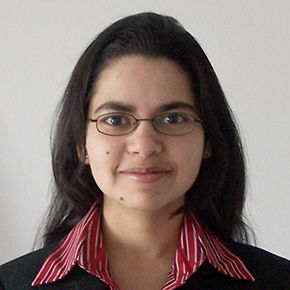Keynote Speaker

Richa Singh / Professor and Head, Dept. of Computer Science and Engineering, Indian Institute of Technology Jodhpur
2022-12-07 | 09:00 (Asia/Calcutta)
The increasing capabilities for machine learning algorithms is enabling the usage of ML models for a variety of tasks including for creativity such as generating new music and modifying existing music. Similar applications are present in different kinds of audio signals such as voice biometrics, speaker and speech recognition. However, these technologies that support creativity can also be used for malicious purposes. Deepfake audios are one such technology which enable flawlessly altering existing audio signals or creating new signals from any given text. Audio can also be integrated with videos to provide a complete multimodal experience, which can be purely synthetic and fake. While there is significant research ongoing in image and video, the space of detecting these anomalies in audio processing is relatively unaddressed. We will discuss some of these possible adventures of machine learning in audio processing and the research efforts that we are undertaking to detect them. In addition, we will also discuss the bias and fairness issues in audio processing where we will highlight "out of distribution" behavior of popular approaches and some strategies to address them.
Bio
Richa Singh received her Ph.D. degree in computer science from West Virginia University, Morgantown, USA, in 2008. She is currently a Professor and Head at Department of CSE, IIT Jodhpur. She has co-edited the book Deep Learning in Biometrics and has delivered keynote talks/tutorials on deep learning, trusted AI, and domain adaptation in NVIDIA GTC 2021, BIOSIG2021, ICCV 2017, AFGR 2017, and IJCNN 2017. Her areas of interest are pattern recognition, machine learning, and biometrics. She is a Fellow of IEEE, IAPR and AAIA, and a Senior Member of ACM. She was a recipient of the Kusum and Mohandas Pai Faculty Research Fellowship at the IIIT-Delhi, the FAST Award by the Department of Science and Technology, India, and several best paper and best poster awards in international conferences. She is/was served as the Program Co-Chair of CVPR2022, ICMI2022, IJCB2020, AFGR2019 and BTAS 2016, and a General Co-Chair of FG 2021 and ISBA 2017. She is also the Vice President (Publications) of the IEEE Biometrics Council and an Associate Editor-in-Chief of Pattern Recognition.